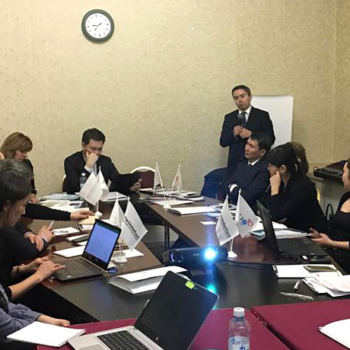
Representatives of patient communities, NGOs and state institutions of Kazakhstan, international agencies and organizations held a meeting on January 16 to discuss the results of the ART Availability Overview in the country and focus on the scenarios for overcoming legal, regulatory and economic barriers to treatment.
The participants noted that similar problems exist in the area of legal regulation of the procurement of HIV medicines and the drugs used to treat other socially significant diseases.
One of the key messages was that “the state, NGOs and international organizations, that is, all the stakeholders, need to effectively, efficiently and expediently join their forces and work together, listen to each other’s opinions. We need to cooperate in order to solve existing problems”.
Summarizing the discussions and presentations at the event, the following key issues were considered:
– availability of medicines and public procurement regulations;
– patent barriers and their impact on the provision of ART, in accordance with international and national protocols for the treatment of HIV;
– existing legal framework on intellectual property in Kazakhstan;
– ways of overcoming existing legal, regulatory, economic and other barriers;
– trends in the EECA region and the best global experience in providing treatment to all who need it.
It was noted that state regulation in the country is carried out, among other methods, through the state control of pharmaceutical activities: licensing of pharmaceutical activities, state registration, re-registration and modification of the registration dossier of medicines, state regulation of prices for medicines within the guaranteed scope of free medical care.
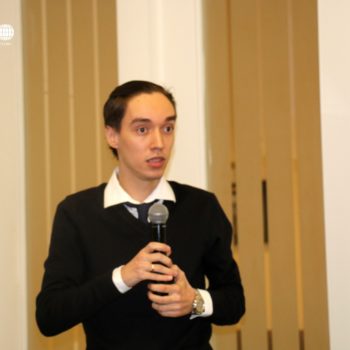
Artem Golobokov, advocacy specialist of the East Europe and Central Asia Union of People Living with HIV.
“Continuing its work to expand access to modern, effective and safe ARVs within the framework of the implementation of the regional PARTNERSHIP program, ECUO PLWH conducted an analysis of the level of availability of modern ARV drugs in 4 countries (Moldova, Lithuania, Kyrgyzstan and Kazakhstan).
In the course of the analysis, we managed to create together with experts and activists in the countries a unique case that allowed to trace the “route” of medicines from pharmaceutical manufacturers to a specific patient who needs ART. I should mention that the analysis was conducted in 4 countries with completely different legal procedures for registration, procurement and requirements for inclusion in the list of essential medicines, as well as treatment protocols.
Identification of existing barriers and problems in providing patients with life-saving drugs is essential for us. The analysis outcomes will be used to develop mechanisms to increase the availability of ARV drugs for all PLWH in the EECA region. ECUO PLWH has proven confirmed high efficiency of the study and observed that government officials and representatives of international organizations show interest in it; we consider the possibility of implementing a similar study in other countries”, said Artem Golobokov, advocacy specialist of the East Europe and Central Asia Union of People Living with HIV.
It is important to note that the citizen’s right to the health is a strategically important task of the government in Kazakhstan. Therefore, ensuring public health, people’s safety, efficiency and quality of medicines are among the key factors of the national security. As of 2016, 80.6% of registered PLWH are provided with ART, however, the number of newly detected cases of HIV is actively growing. The prevalence of HIV among the general population of the Republic of Kazakhstan is 0.1%, and the rate per 100 000 of people is 108.9 in 2016 (to 103 in 2015).
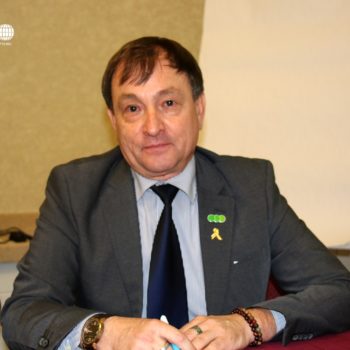
Sergey Byuryukov, Director of Public Foundation “AGEP’C” and ECUO expert, mentioned the barriers identified in the process of ART availability analysis and provided recommendations on the ways to overcome them:
“I was very, very fortunate. I had an opportunity to work with highly qualified specialists. Therefore, the collection and processing of information was completed pretty quickly. I want to thank our consultants Madina Kaibagarova, Aliya Shamakhanova and Kanat Alseitov for their highly professional and responsible attitude to the task.
As for main barriers, I should mention the requirement of price registration in accordance with Order No. 639, which determines the pricing procedure for medicines and medical products within the framework of the Guaranteed scope of free medical care (GSFMC) (the scope of budget-funded medical assistance which is guaranteed in the Republic of Kazakhstan) – the procedure takes 50 calendar days; the prices are registered in the National Formulary of Kazakhstan (NFK). This is an inefficient system of setting ceiling prices for patented/generic drugs and reference pricing. It entails a routine revision of the List of Drugs Procured by the Single Distributor (SD) only once a year, and the list is formed on the basis of NFK. Of course, it is also necessary to have solid evidence that a certain drug is economically feasible for the country. And often this is very difficult, because the emerging innovative drugs are more expensive than older ones, as they are more effective, they reduce the pill burden, which facilitates adherence to treatment, and have a more optimal safety profile. This process takes on average 3 years. New ARV medicines get included in the SD list if they appear in the Essential Medicines List. They must be incorporated in the SD list to authorize their procurement in the country. There is also a number of organizational and legal flaws in the medicines procurement system.
Based on the Overview outcomes, we developed the following actions to improve access to ART in the country:
– Single out a special category of medicines for socially significant diseases, including medications for the treatment of HIV, hepatitis C, B (D), TB and envisage their accelerated registration within 3 months, if these drugs are registered in the United States and European Union. It proves that they have passed quality compliance procedures in countries with a stringent regulatory system more than once. This allows to rely on data from EMA and FDA experts and speeds up patient access to therapy.
– Unify the approach for the inclusion of drugs in the GSFMС/Obligatory Health Insurance lists in accordance with the relevant legislation at all stages.
– Propose the authorized public health body to revise the terms and frequency of approval of the List of medicines and medical devices to be procured by the Single Distributor for the GSFMС.
– Exclude the chain of intermediaries through increasing the share of purchase of tax-free medicines under direct contracts with manufacturing plants.
– Update the Clinical Protocol on HIV in the Republic of Kazakhstan, not only on the basis of the WHO protocol, but also taking into account the European recommendations by the EACS. After all, Kazakhstan seeks to be among the top 30 countries, according to the 2050 strategy, and the WHO protocol is aimed at developing countries with a low economic level of development. Moreover, the medicines in the protocol do not correspond to all available innovative treatments that are registered in Europe. This aspect limits the right of patients for access to the best treatment.
– Involve the community of PLWH Patients for the development of the protocol is crucial”.
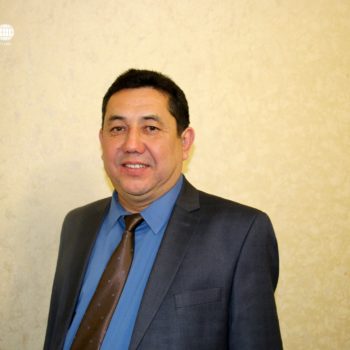
Kanat Alseitov, Director of Balakai Shimkent, expert of ECUO PLWH:
“The purpose of this work was to prepare an analytical review of national drug legislation, public procurement of medicines, authorization of drugs and registration of manufacturer prices for ARV medicines in terms of accessibility, including those related to the implementation of TRIPS flexibility mechanisms.
The information in the Overview reflects the current situation in public procurement of medicines, registration of medicines, and the degree of influence on the provision of ARV therapy, including patent barriers. Objective data on needs were collected and recommendations formulated for taking the necessary actions to improve the process of ARV drugs public procurement. Moreover, a possible revision of the legislation on IP rights protection to pharmaceutical products is considered.
The Republic of Kazakhstan provides extremely attractive opportunities in terms of pharmaceutical market development! We have keen interest and considerable need in the manufacturing and sales of ARV drugs, our legislation in the area of medicinal products circulation is harmonized with the European requirements, and the Patent Law is constantly updated and its relevancy is improved following the enactment of new requirements.
All these components will ensure that people vulnerable to socially significant diseases, including PLWH, receive and will continue to receive timely and high-quality medical assistance in Kazakhstan, including government-funded one. In addition, the state now pays great attention to the regulation of the pricing policy for medicines, not only the ones in public procurement, but also the drugs which the customers purchase themselves. Furthermore, since the pharmaceutical market of Kazakhstan today is attractive not only for many global manufacturers, but also for the development of domestic production, all this will contribute to establishing adequate prices for both producers and patients”.
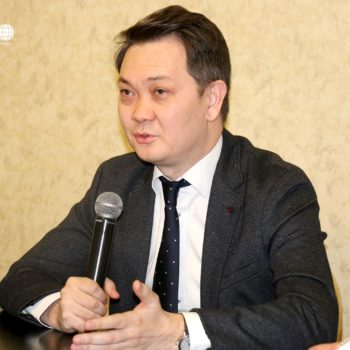
Kanat Sukhanberdiyev, representative of the UNICEF Health and Nutrition Programs.
“We had an active and prolific discussion of the Overview outcomes.
I am glad to observe the coordination and interaction of representatives of the non-governmental sector to discuss widespread pressing issues in access to treatment, which is very valuable today. I am glad that I took part in the event, and I want to highlight that all stakeholders paid considerable attention to the topic. Public services and committees, the Single Distributor (Pharmacia state company), international organizations and UN agencies have united for a common purpose and, of course, this is a very important initiative of the ECUO PLWH and the community of patients of Kazakhstan.
Obviously, there are problems not only in the procurement of ARV drugs, but also in the procurement of all medicines for key populations in Kazakhstan. In this context, UNICEF also has successful experience in optimizing procurement processes with the Ministry of Health of the Republic of Kazakhstan. Not so long ago, in 2016 a Memorandum on cooperation was signed between UNICEF and the MoH of Kazakhstan. Then the first procurement was made, the necessary medicines were delivered and this transaction helped the state to save more than $3 million in the short run. It was a successful experience for the country, enabling significant budget savings, while all the saved funds were redistributed to other priority programs.
As for the event, I will add that the discussions of the presentations were very lively, there were a lot of questions from the participants, and I met many experts at the meeting. It is interesting that despite its medical agenda, the event was attended by not only physicians, but also procurement specialists, lawyers, NGO representatives who are very knowledgeable about the issue and uphold the rights of the PLWH community. There were many interesting personalities and cutting-edge opinions, I even made notes for myself.
I think that the organizers managed to involve like-minded people who will make a great contribution to the team, who are actively engaged in the work and will vigorously develop improvements. Moreover, the more people involved, the more discussions, comments, opinions there are, and the more effective the result is.
Conducting such a comparative evaluation of the ART procurement systems in 4 countries, as ECUO experts did, is a very time-consuming process. Then, at the stage of comparison it is necessary to understand the legislative nuances for each of the countries, compare them, describe the areas for necessary improvement. At the same time, it is crucial to take into account that each state has its own specifics. It is very important that the final version of the report would be considered by the government and attention is paid to certain bottlenecks in the procurement of medicines. It is necessary to validate the report, which is recognized by governments, ministries, Parliament, international organizations, etc.
I also noticed that the professional level of specialists working in the country’s pharmaceuticals system was really enhanced. They show interest in changes. I believe that the mission turned out to be successful, the message was delivered and I’m waiting for a draft report on the round table for general discussion”.
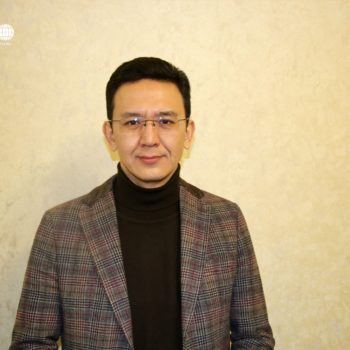
Timur Zharkenov, IP specialist:
“I am very glad to attend the meeting. It was a great opportunity to see the work of experts from the community of patients and their interaction with government officials.
I can say that significant changes in the Ministry of Health of the Republic of Kazakhstan are already clearly visible. The state officials listen to us, join the discussions, declare their readiness to take part in the meeting and interact with civil society, this is a big step forward.
This is what I saw during the discussions here. I appreciate interesting and informative presentations of speakers on legal issues, intellectual property and procurement of ART.
I hope I managed to convey information on the pros and cons of parallel imports, in the context of the discussed issues on access to HIV treatment.
I am sure that if we succeeded in resolving this issue, if we managed to adopt the appropriate rules of the game taking into account the specifics of the industry, relying on Georgia’s experience in optimizing the drug supply for the health area and the proposals of the antimonopoly bodies of Russia, it would bring along great benefits first of all for the people, and also for public procurement and development of the country”.
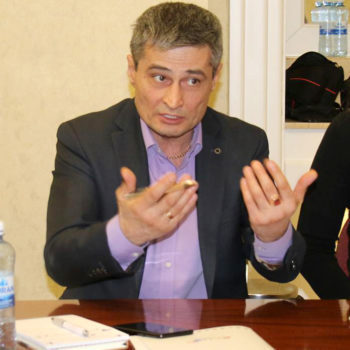
Nurali Amanzholov, President of the Kazakhstan Union of People Living with HIV and leader of the NGO Consortium of Kazakhstan, a regional PARTNERSHIP program member.
“The round table focused on important issues for Kazakhstan, and debates were active. All these issues are so relevant and urgent, that I would like to take more time to their discussion. It was evident that the participants have something to talk about, and they wanted to speak out. We do not often communicate with the Ministry of Health and the Pharmacia state company, many officials were substituted recently. It is very encouraging that a new team of state officials is ready to change something and is open to dialogue. I would also like to see that Quality Control Committee also shows interest in this issue and gets involved in discussions, because the committee plays a key role in ART medicines pricing.
I believe that discussions should further develop and there should be more time to cover all the important aspects. The team of the Kazakhstan Union of PLWH during the last months of 2017 researched the issues of intellectual property and pricing for medicines. We plan to present our results already in February, I will be glad to interact and further exchange information between our organizations to achieve common goals to expand access to ART and strengthen the community in Kazakhstan.
It’s important to mention that in addition to ARVs procurement there are a number of other issues rather overlooked in the country, for example, providing ART to foreigners permanently residing in the country, as well as to people in detention facilities, but we are working to address these problems and improve the situation.
Establishment of the public council at the Single Distributor (Pharmacia state company) was another important proposal raised at the meeting. They did not express any strong objections; for example, a similar public council already operates under the Ministry of Health of the Republic of Kazakhstan. The establishment of a public council will ensure greater transparency of medicines procurement tenders, in which all the stakeholders are interested to ensure effective state policy on providing treatment not only for people with HIV, but also for patients with co-infections, like TB and hepatitis. Now the tenders are held in two stages and the community may, at best, obtain information only about the actual prices of the deal. Unfortunately, information about tender participants and all applications of the first stage is not provided. Thus, the transparency procedure is not ensured. I’m looking forward to receive roundtable minutes for discussion and further cooperation”.
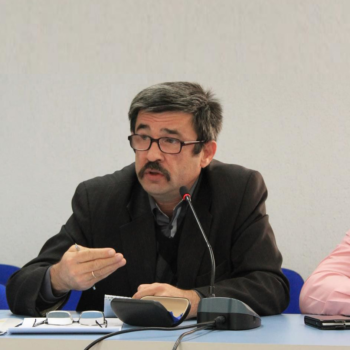
Igor Kilchevsky, Executive Director of the “East Europe and Central Asia Union of People Living with HIV:
“I would like to highlight the importance of the event, the recognition of its usefulness by all participants and those who subsequently seek information from our sources. The collected data from four countries are still being reviewed and processed to ensure most accessible, convenient and effective use by the community working on access to treatment. The results of the Overview received from the country teams are, in our opinion, an important step to revitalize, foster and corroborate professional growth of the community, since the community accepted responsibility and ownership of all relevant work within the study.
We very much hope that the country teams will be able to support many NGO initiatives on access to HIV, hepatitis, TB and other diseases treatment in terms of providing information and helping with practical work”.
Representatives of the Pharmaceutics Committee of the Ministry of Health of the Republic of Kazakhstan, the Pharmacia state company, the Foundation of Women Living with HIV in Kazakhstan, the Kazakhstan Union of People Living with HIV, the Republican AIDS Prevention and Control Center, the Public Foundation “AGEP’C”, the Public Foundation Balakai-Shymkent, UNDP, UNICEF, the City AIDS Center of Astana, ECUO of PLWH participated in the event.
Similar Overviews and roundtables were earlier held in Moldova, Kyrgyzstan and Lithuania. The events take place within the framework of the regional program “Partnership for Equal Access to the Continuum of HIV Services for all Who Need It in the EECA region”, implemented by the East Europe and Central Asia Union of People Living with HIV (ECUO PLWH) with the support of the Global Fund.
* Data as of the end of 2016
Представители пациентских сообществ, НПО и государственных учреждений Казахстана, а также международных агентств и…
Posted by ECUO | ВЦО ЛЖВ on Freitag, 19. Januar 2018
